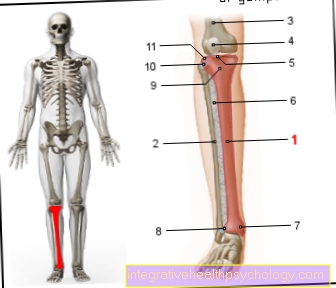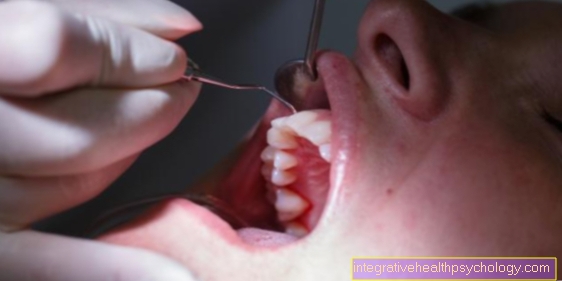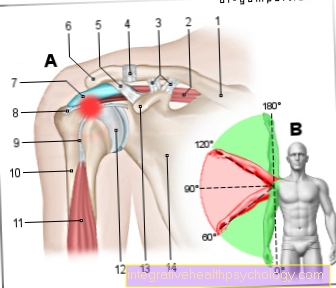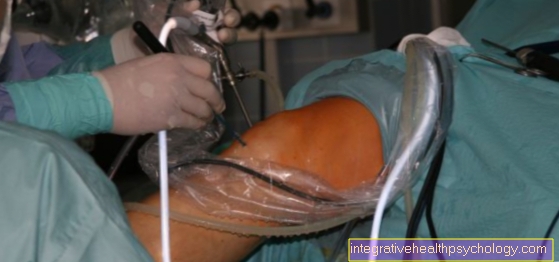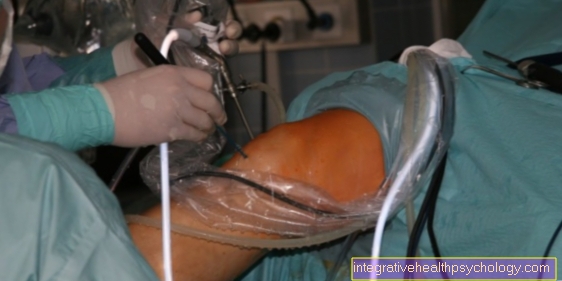Duration of a skull base fracture
Healing time
How long it takes for a skull base fracture to heal completely cannot be generally said. The course of this injury depends a lot on what it looks like.
In the case of a simple fracture of the base of the skull, in which the fragments are not displaced against each other and in which there are no accompanying injuries, those affected can usually participate in life completely normally and unrestrictedly after a few days to a few weeks. In such cases, surgery is usually not necessary, but hospitalization is, as any serious complications that may arise can be recognized and treated directly.

Complicated skull base fracture
In the case of complicated fractures of the base of the skull, i.e. when individual fragments are displaced against one another or bone splinters have occurred, an operation is always recommended. In this operation, the bone parts are brought back into their correct position and stabilized with aids such as screws, plates and wires. This requires a longer stay in hospital, as the patients must be monitored after the procedure to rule out complications such as bleeding. As a rule, the stay is a few days to weeks. In addition, a rest period of a few weeks is necessary until complete recovery, as this is a major procedure that puts a strain on the body.
Accompanying injuries
Accompanying injuries can include a broken nose, but nerve injuries are also more common with a skull base fracture.
If the nose is affected, surgery is recommended. This injury is usually accompanied by a loss of smell, which in some cases cannot be remedied even after the operation. The regeneration of the olfactory cells often takes a long time, which is why an exact statement can only be made after a few weeks. Due to the impairment of smell, the perception of taste is also restricted.
If the nerve cords are injured by a fracture of the base of the skull, sensory disturbances or paralysis can occur, depending on which nerve was injured. Since nerves grow back very slowly, it often takes several weeks before they can regain their original function. This also often requires consistent physiotherapy or rehabilitation time.
In addition, hearing disorders are often accompanying injuries, especially when the break line runs through the inner ear. This affects not only the hearing but usually also the sense of balance. Here too, an operation is carried out.
In severe cases, brain involvement can occur. Cells are destroyed in particular by bleeding and the associated increase in intracranial pressure. The focus here is on rapid relief by reducing pressure, since otherwise irreversible damage such as paralysis, sensory disorders and cognitive impairments can occur.


.jpg)
